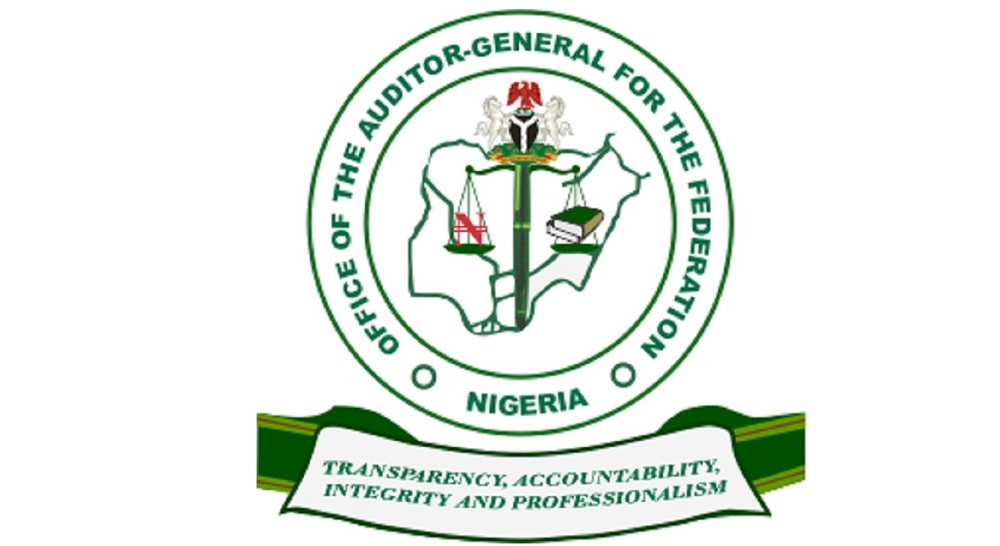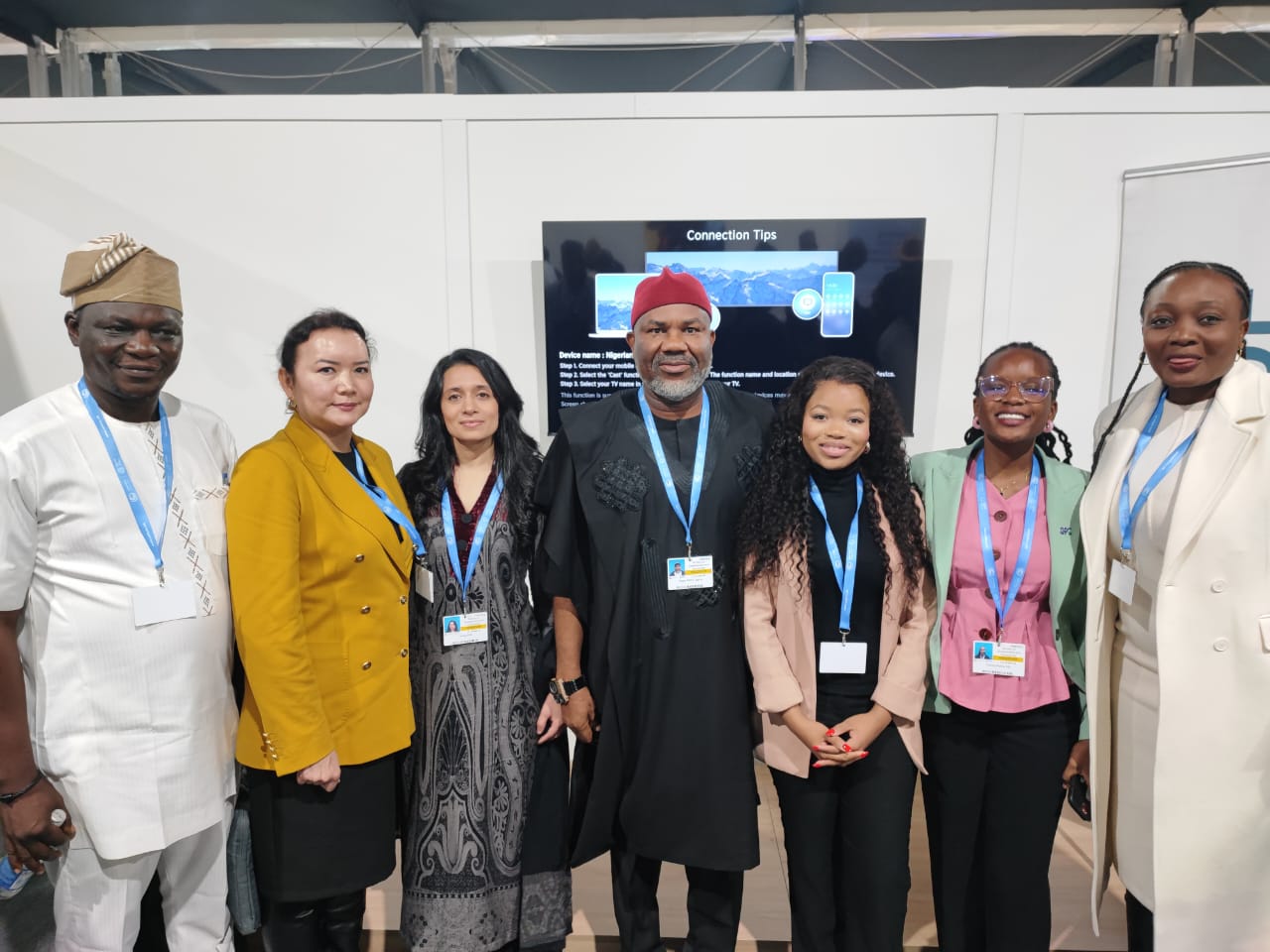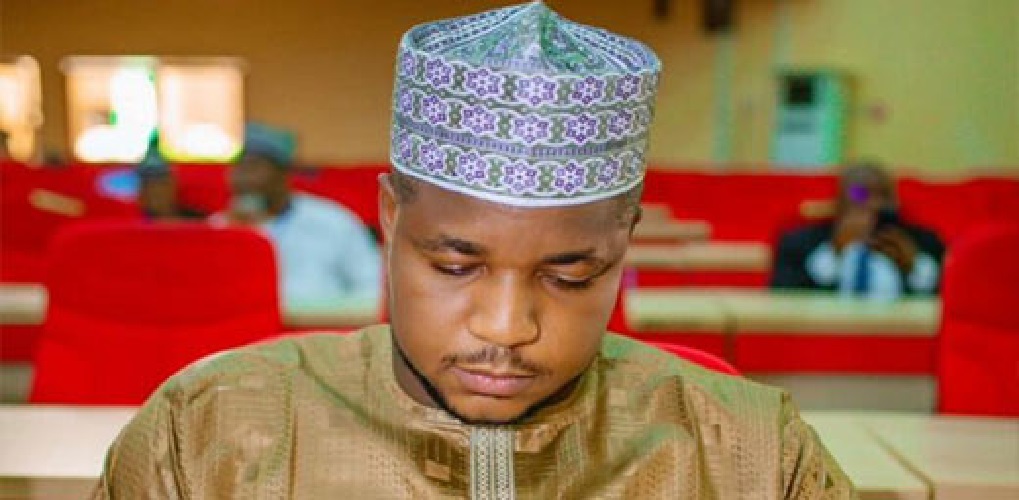News
Auditor General Uncovers N3.4trn Fraud In MDAs

The Office of Auditor General for the Federation (OAuGF) has said it uncovered financial infractions amounting to N3.4 trillion in several government Ministries, Department and Agencies (MDAs) for the financial year ending December 31, 2021.
The alleged infractions reported in 28 audit issues are contained in the 2021 audit report of non-compliance/internal control weaknesses in the MDAs for the 2021 financial year.
The report was submitted to the National Assembly via a letter, dated October 15, 2024 by the Auditor General for the Federation (AuGF), Shaakaa Kanyitor Chira.
It said N2.902 trillion of the amount was incurred through the failure of eight agencies to recover outstanding government revenue with the Nigerian Bulk Electricity Trading Plc failing to recover N2.896 trillion.
In a letter addressed to the Clerk to the National Assembly, Chira said the infractions were part of what he called cross-cutting issues which he said were the same non-compliance/internal control weaknesses that were identified in at least four MDAs of the Federal Government of Nigeria (FGN) covered by the Auditor-General for the Federation’s Annual Report on Non-compliance/Internal Control Weaknesses in MDAs of the FGN for the year ended December 31, 2021.
The AuGF said the attention of the Public Accounts Committees of the National Assembly had been drawn to the issues through recommendations, including sanctions, with a view to stemming the tide.
He said the issues were treated in details under each MDA.
Chira explained that the essence of putting the issues together was to further assist the Public Accounts Committees and other stakeholders to see, at a glance, the amount the report sought to help the Federal Government recover from a class of issues, tagged: ‘Cross-Cutting’.
The report, a copy of which was obtained by The Nation, said N7.386 billion was discovered as part of irregularities in the award of contracts by 32 MDAs with the Rural Electrification Agency, Abuja, having the highest infraction of N2.118 billion while the NSPMC had the least amount of N11.7 million.
The report alleged irregular payment of N115.675 billion by 64 MDAs with the Nigerian Bulk Electricity Trading Plc, Abuja, having the highest infraction of N96.2 billion while the Federal Neuro-Psychiatric Hospital, Kaduna, had the least amount of N1.323 million.
The AuGF said N167.592 billion was found to be for contracts that were not executed by 31 MDAs in the year under reference with the Nigerian Bulk Electricity Trading paying N100 billion, while the National Centre for Women Development paid the least amount for unexecuted contracts to the tune of N2.171 million.
The report said six MDAs failed to deduct Withholding Tax and Value Added Tax (VAT) amounting to N129.341 million as the accruing taxes to the government, with the Federal Road Safety Corps (FRSC) failing to deduct the highest tax amounting to N90.58 million, while the Federal Ministry of Labour and Employment came last with N623,162.80.
It added that 21 MDAs failed to deduct N2.636 billion as tax from payments to several beneficiaries, with the Nigerian Security Printing and Minting Company Pic (NSPMC) leading the pack with N41.009 billion, while the Federal Medical Centre, Ebute Meta in Lagos, had the least amount of N617,427.66.
According to the report, 11 MDAs failed to remit N11.561 billion tax deducted from tax payers to the relevant tax authorities, with the Nigerian Security Printing and Minting Company Plc (NSPMC), failing to remit the highest amount of N10.393 billion while the Federal Medical Centre, Katsina, failed to remit N1.371 million to come last.
The report also said that the sum of N8.312 billion was paid out by about 40 MDAs without supporting documents to back up the payment, with the Presidential Amnesty Programme (PAP), being the biggest culprit with N1.529 billion while the, Federal College of Land Resources Technology, Owerri, has the least amount of N1.992 million.
It also alleged that eight MDAs misapplied N663,854,877.01 in contravention of extant laws, with the University of Benin Teaching Hospital, Benin City, spending about N253,532,050.49 of the money, while 24 other MDAs awarded contracts worth N20.334 billion without following due process; the Nigerian Security Printing and Minting Company Plc (NSPMC) was said to have awarded contracts valued at N14.136 billion without following due process.
According to the report, the Federal Inland Revenue Service (FIRS) failed to recover about N69.928 billion as tax liabilities from 26 of its outstation offices within the period under review, while items valued at N968.908 billion were taken from the store by 29 MDAs without ledger charge with the Nigerian Railway Corporation (NRC), Lagos, alone accounting for N125 billion of the items.
The audit report also said in 2021, 15 MDAs carried out extra-budgetary expenditure amounting to N15.786 billion with the National Agricultural Land Development Authority (NALDA), accounting for N8.86 billion of the amount.
In addition, it said six MDAs carried out virement of about N2.63 billion without approval, with the Rural Electrification Agency (REA) accounting for N1.9 billion of the amount, while about N122.5 billion was left unaccounted for by 19 MDAs, with the Nigerian Bulk Electricity Trading Plc failing to N111.601 billion of the amount.
The report also said about N6.602 billion was generated internally by 29 MDAs but not remitted to the appropriate authority, adding that the National Pension Commission withheld the highest amount of N4,429,550,386.58, while 35 MDAs circumvented the procurement process that caused the loss of N1,948,132,710.98.
It accused nine MDAs of paying external solicitors about N243,932,964.27 engaged without the Attorney-General’s Fiat with the Bureau of Public Procurement having the highest amount of N112,261,659.00, while another 5 MDAs paid some unspecified third parties about N439,688,368.76 without the attorney general’s approval.
Five MDAs reportedly awarded contracts valued at N2.407 billion and above their approval threshold with Ahmadu Bello University Teaching Hospital, Zaria, having the highest amount of N1,065,614,232.70, while the workers and unauthorised persons in five MDAs illegally held on to government vehicles valued at N747,749,365.06, with the Nigerian Security Printing and Minting Company (NSPMC) Plc, Abuja, having the highest amount of N413,343,623.00.
Other infractions reported by the AuGF include denial of access to documents with expenditure amount to N21,480,891,930.77 by 11 MDAs, unretired cash advances in 30 MDAs amounting to N1,300,643,209.41 and payment without vouchers amounting to N1,135,025,464.67, with the Federal Ministry of Works (Housing Sector) having the highest amount of N1,076,662,242.61.
The Nation
News
COP29: Reps, Others Advocate Equitable Policy For Energy Transition


News
Alleged adultery: Shari’a court clears Jigawa commissioner

The Upper Shari’a Court in Kano, presided over by Ibrahim Sarki Yola, has cleared Jigawa State’s Commissioner for Special Duties, Auwal Danladi Sankara, of allegations of committing adultery with a married woman.
Recall that the case was filed by Nasiru Buba, who accused Sankara of having an illicit affair with his wife, Tasleem Baba Nabegu.
While delivering his ruling, Sarki Yola stressed the need for holistic and cautious investigations by law enforcement and regulatory bodies like the Hisbah Commission, noting that allegations against prominent individuals must be handled with care to avoid unnecessary tarnishing of reputations.
The court also observed that the complainant and his legal representatives failed to appear to contest the Police findings.
“Following the investigation by the office of the Assistant Inspector General of Police, the report shows there is no evidence to prove that there was any illicit affair between Auwal Danladi Sankara and Tasleem Baba Nabegu.
“Since the complainant and his lawyers are not present to challenge the submission by the police, I have no choice but to strike out the case,” the judge stated.
Speaking on behalf of Sankara, his counsel, Barrister Sadam Suleiman, expressed satisfaction with the judgment.
“We have always maintained that our client is innocent. The court has affirmed this by clearing his name based on the police investigation,” Suleiman said.
Meanwhile, Rabiu Shu’aibu, counsel for Tasleem Baba Nabegu, indicated that his team might take further legal action against Nasiru Buba for defamation.
“We will discuss with our client to explore the possibility of filing a case against Nasiru Buba, as he has defamed her name,” Shu’aibu remarked.
News
Court hears suit challenging Lagos-Calabar highway contract Jan 14

The Federal High Court in Lagos, on Monday, adjourned the hearing of the Lagos- Calabar Coastal Highway Project over environmental impact to January 14, 2025.
A former governorship candidate of the African Democratic Congress in Lagos State, Funsho Doherty, had dragged the Attorney General of the Federation, Bureau of Public Procurement and HiTech Construction company before the court over open competitive bidding.
He alleged that the Federal Ministry of Works violated the Public Procurement Act 2007 by awarding the first two phases of the highway to Hitech Construction through a single-source procurement process, bypassing the required open competitive bidding.
Doherty is accusing the Federal Ministry of Works of unlawfully awarding the highway’s first two sections to Hitech Construction without adhering to Nigeria’s public procurement laws.
In his originating summons, Doherty argued that the ministry’s decision bypassed the open competitive bidding process mandated by the Public Procurement Act 2007.
He claimed that the construction began without the required Environmental Impact Assessment, which breaches the Environmental Impact Assessment Act 1992.
The plaintiff is asking the court for a declaration that the award of the first two sections of the Lagos- Calabar Coastal Highway Project by the Federal Ministry of Works to the third defendant without subjecting same to open competitive bidding was unlawful and void, being in breach of the Public Procurement Act 2007.
He also asked the court for a declaration that the commencement of construction of the Lagos- Calabar Coastal Highway Project without first undertaking an Environmental Impact Assessment was unlawful and a breach of the Environmental Impact Assessment Act, 1992.
He further sought a declaration that the Federal Ministry of Environment and the second defendant failed in their statutory duties of ensuring compliance with the Environmental Impact Assessment Act and the Public Procurement Act.
Doherty asked the court for an order setting aside the award of the Lagos-Calabar Coastal Highway project to the third defendant.
“An order of court restraining the Federal Ministry of Works and the third defendant, by themselves or through their agents, from further construction of the Lagos-Calabar Coastal Highway until compliance with the Public Procurement Act and the Environmental Impact Assessment Act.
“An order of court directing the Federal Ministry of Works to subject all other sections of the Lagos-Calabar Coastal Highway project yet to be awarded to open competitive bidding as contemplated under the Public Procurement Act.”
When the case came up on Monday, the plaintiff’s counsel, D. D. Duru, informed the court that the matter was coming up for the first time.
He informed the court that the defendants had been served and had responded with counter-affidavits and a preliminary objection, making the matter ripe for hearing.
But the first and second defendants counsel, Abiodun Owonikoko (SAN), who announced his appearance for both defendants, was opposed by Duru, for representing the second defendant, arguing that the second defendant’s separate counsel should appear as it is an independent institution.
Owonikoko, in his reply, said the process referred to by the plaintiff’s counsel was only brought to his notice on Monday.
“The process referred to by my learned friend was only brought to my notice today.
“I asked if the counsel who filed the processes was in court but it appears he was not,” he said.
Owonikoko then asked that the process filed by the second defendant should be struck out.
Duru, in his response, said,” It will be improper for the SAN, to say he was instructed to ask for the striking out of the second defendant’s application.
“It is either the lawyer who signed the processes that come to withdraw or the SAN files for change of counsel.”
The third defendant’s counsel, Oyinkansola Badejo-Okunsanya, sought an extension of time.
She said the application was filed on November 15, 2024, adding that the application was supported by an 11-paragraph affidavit.
Badejo- Okunsanya, moved the application in terms, which the court granted.
Justice A. O. Owoeye adjourned the case till January 14, 2025, to regularise the processes and scheduled the hearing for January 27, 2025.
-

 News22 hours ago
News22 hours agoTinubu fires DG names replacement (photos)
-

 News22 hours ago
News22 hours agoKwankwaso cries out, says there are plots to colonise north
-

 News23 hours ago
News23 hours agoHonoring Excellence: Dr. Olotu Otemu Akpodiete JP – A Beacon of Inspiration for GCU Class of 92
-

 News22 hours ago
News22 hours agoBanditry! Police Officer feared K!lled As Gunmen Attack Lawmaker’s Convoy in Abia State
-

 News18 hours ago
News18 hours ago“Be dedicated to Nigerians as God is watching you”-Onaiyekan cautions Tinubu
-

 News19 hours ago
News19 hours ago“How I almost died – Mike Tyson narrates a near-death experience before Jake Paul fight
-

 News18 hours ago
News18 hours agoECHOES from one-day national dialogue on home grown Parliamentary System in Nigeria(Photos)
-

 News22 hours ago
News22 hours agoSAD! Ex-DG NIA, Amb Zakari, dies at 81








